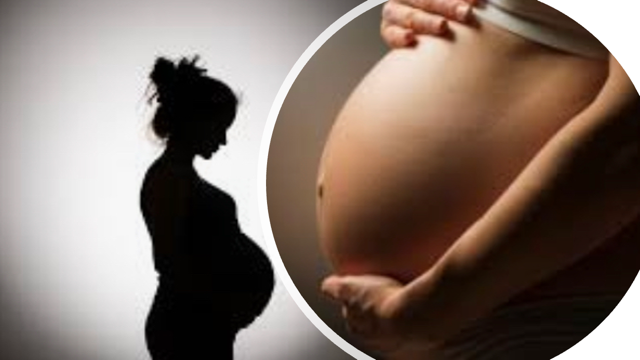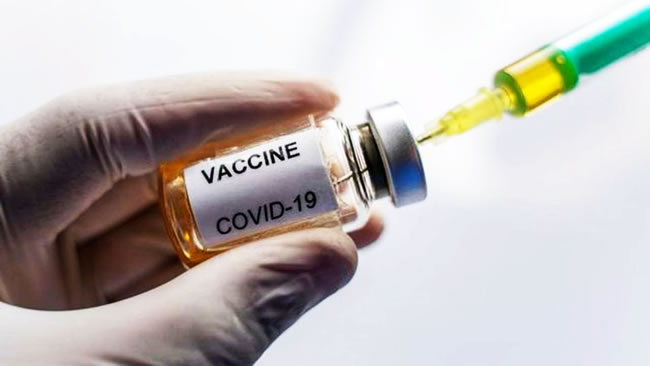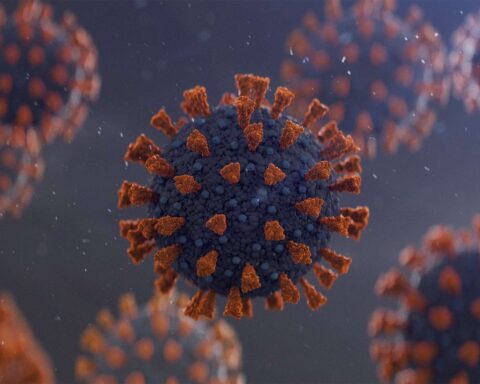By Dr Gabriel Uguru
Join our WhatsApp Channel
The severe acute respiratory syndrome coronavirus 2 (SARS-CoV-2) has affected our lives to such a degree that no conversation is complete nowadays without the mention of the virus.
Vaccine hesitancy is rife despite the fact that vaccination is nothing new and has been around for ages. But given the political, religious and social media disinformation and misinformation undertone, the practice has gained traction culminating in an anti-vaccine (anti-vaxxer) movement, which is proving difficult to combat. This in effect means that many lives are jeopardised and many people are dying needlessly out of ignorance and unfounded fear of the vaccines.
Pregnant women pre-SARS-CoV-2 pandemic by their condition are very fragile health-wise, and given the extreme severity of the COVID-19 disease condition, are even at greater risk now, yet only few pregnant women are taking up immunisation against the virus! According to data released by the US Centers for Disease Control and Prevention (CDC), as few as 40 percent of pregnant women in the USA had been immunised against SARS-CoV-2 as at 1 January 2022. Compare this figure with ca. 63 per cent of the US population who had been fully vaccinated against the virus.
READ ALSO: Omicron Variant of SARS-CoV-2: Is the Virus Weakening or Still Evolving?
Several studies on the effect of COVID-19 in pregnancy have shown that the disease is associated with increased risk of morbidity (sickness) and mortality among pregnant women. As at the end of last year in the USA, more than 250 deaths were recorded out of ca. 25,000 pregnant women with the COVID-19 disease condition admitted to hospital, giving a disturbing ratio of one death for every 100 pregnant women with COVID-19 disease condition in hospital admission.
Chinn and coworkers conducted the largest single-database study to date involving 869,079 women aged from 18 years and above, who underwent childbirth at nearly 500 medical centres in the USA. Among this study group were included 18,715 women with the COVID-19 disease condition. The study was conducted within a year’s period, between 1 March 2020 and 28 February 2021.
The study found that “Women with COVID-19 giving birth had higher rates of mortality, intubation, ICU [intensive care unit] admission, and preterm birth [premature birth] than women without COVID-19.”
Detailed analysis shows that pregnant women with SARS-CoV-2 infection were 15 times more likely to die during pregnancy than other pregnant women without the infection. Pregnant women with SARS-CoV-2 infection were also 14 times more likely to require intubation (insertion of a tube externally connected to an oxygen machine, then through a person’s mouth or nose down into the windpipe to aid breathing), and also were 22 times more likely to have premature births than other non-SARS-CoV-2 infected pregnant women.
The above findings were not in isolation, several previous studies did show the negative effects of COVID-19 during pregnancy including higher rates of caesarean delivery, preeclampsia (high blood pressure, at times with kidney problems resulting in fluid retention and protein in urine or proteinuria), and thrombotic events (blood clots).
A similar study by DeSisto and coworkers, which was published in the Morbidity and Mortality Weekly Report by the CDC, found that “among 1,249,634 delivery hospitalisations [at 736 hospitals] during March 2020-September 2021, U.S. women with SARS-CoV-2 infection were at increased risk for stillbirth compared with women without the disease condition.
And a study by Di Girolamo and coworkers, which was published in the American Journal of Obstetrics & Gynaecology in 2021, reported the occurrence of histopathologic abnormalities among pregnant women with SARS-CoV-2 infection, which suggests that placental inflammation and hypoperfusion (reduced blood flow) might be associated with the COVID-19 disease condition. This in effect could explain the high risk of stillbirth seen in pregnant women with SARS-CoV-2 infection.
The danger posed by the COVID-19 disease condition in pregnancy was underscored by a recent study conducted in Scotland, UK. In the population study, which started from the advent of the SARS-CoV-2 vaccines in December 2020 up to October 2021, the scientists reported in a recent publication in Nature Medicine that the effect of SARS-CoV-2 infection was worse if the infection happened late in pregnancy than at any other times. The study recorded 14 infant deaths (10 were stillbirths) in unvaccinated pregnant mothers out of 620 women who contracted SARS-CoV-2 infection 28 days before delivery. This by extrapolation gives almost 23 infant deaths in every 1000 births compared to about 6 deaths in 1000 births in all pregnancies in Scotland recorded between March 2020 and October 2021.
Perhaps the most worrying aspect of SARS-CoV-2 infection in pregnancy is that the virus can pass through the placenta and infect the foetus. In the July 2020 edition of Nature Communication, Vivanti and coworkers demonstrated the ability of the virus to cross the placenta during the last week of pregnancy and cause placental inflammation and neonatal viremia (infection of the foetus’s blood by the virus). Congenital SARS-CoV-2 infection may be associated with neurological manifestations due to inflammation of blood vessels in the brain. The inflammation may cause the walls of the vessels to thicken and restrict blood flow, which in turn may lead to tissue and organ damage.
During pregnancy, the body mechanism of the woman undergoes certain changes. For example, because half of the baby’s DNA comes from the mother’s egg and the other half from the father’s sperm, the baby is a “foreign object”. To avoid the foetus from being recognised and attacked as a foreign body by the woman’s immune system, the body suppresses certain parts of the immune system to accommodate the foetus.
In this process, the foetal-maternal immune tolerance is regulated in a way that dampens or silences certain genes responsible for chemokine expression. Chemokines are small signalling molecules that regulate immune response among other functions. When the expression of the chemokine genes are down-regulated, T-cells, which mediate cellular immunity, are unable to be recruited to attack the embryo.
Further changes include the volume of blood expanding and causing the cardiovascular system to strain, while the enlarging uterus (or womb) reduces lung capacity by pushing up on the diaphragm. These changes meant that a pregnant woman is most at risk from SARS-CoV-2 infection as the COVID-19 disease condition primarily affects the lungs and the cardiovascular system.
How safe are the SARS-CoV-2 vaccines during pregnancy?
A host of published data did show that the vaccines are safe and very effective during pregnancy. Atyeo and coworkers published their findings last year in Science Translational Medicine, which showed that fully vaccinated pregnant women do mount a powerful immune response against the virus.
Other studies did not only show that pregnant women are less likely to develop COVID-19 before delivery compared to unvaccinated pregnant women but also showed that the vaccines have no adverse effect on pregnancy. The risk of miscarriages, premature birth, still birth, congenital disabilities and death was the same both for healthy pregnant women and those who had taken a COVID-19 vaccine.
A study by Gray and coworkers, which was published in the March 2021 edition of the American Journal of Obstetrics & Gynaecology, reveals that the Pfizer-BioNTech (BNT162b2 mRNA COVID-19) vaccine not only mounts a robust immune response in pregnant and lactating women but there is also an immune transfer to the newborn through the placenta and breast milk.
Such occurrence was also seen in the study by Beharier and coworkers who writing in the May 2021 edition of the Journal of Clinical Investigation, reported that, “Antenatal BNT162b2 mRNA vaccination induces a robust maternal humoral response that effectively transfers to the fetus [foetus], supporting the role of vaccination during pregnancy.” Protective antibodies induced by the Pfizer-BioNTech vaccine, according to the authors, are seen in the foetal circulation as early as 15 days after the first jab!
And according to another study by Shook and coworkers, which was published in 2021 in the Preprint Server for Health Sciences, MedRxiv, 60 per cent of babies born to women who were vaccinated during pregnancy had humoral antibodies in the blood, which persisted after 6 months of birth, thus conferring a measure of protection to the vulnerable babies from the virus.
The World Health Organisation in June 2021 recommended that pregnant women be vaccinated against SARS-CoV-2. The US Centers for Disease Control and Prevention who initially were hesitant on the issue, changed its mind based on the overwhelming data showing the safety of the vaccines and the risk the virus posed to pregnant women. The CDC therefore, on 11 August 2021 recommended that pregnant women should be given the jab to protect against the virus.
Given the convincingly and overwhelming weight of evidence as to the efficacy and the safety of the COVID-19 vaccines in pregnancy, and the aforementioned advice by the respected two bodies (WHO and CDC), therefore, the onus is on you to get the jab as soon as practicable, especially if you are planning a pregnancy or are already pregnant. You have nothing to lose by getting the jab but everything to gain for. Your fear of the jab is more of a health disadvantage to you and your baby than the benefits of getting the jab.
If you are vaccine-hesitant or a vaccine-opposition advocate (anti-vaxxer), you should still get vaccinated for the sake of your unborn child who does not subscribe to your choice and therefore has every right to life.
In other words, the baby’s rights to life should not be usurped or compromised by your political, religious or social stance. Obstetricians and other healthcare professionals should endeavour to encourage their pregnant patients to get immunised against the virus as a way of preserving the mother’s health and that of the child in the womb.
















